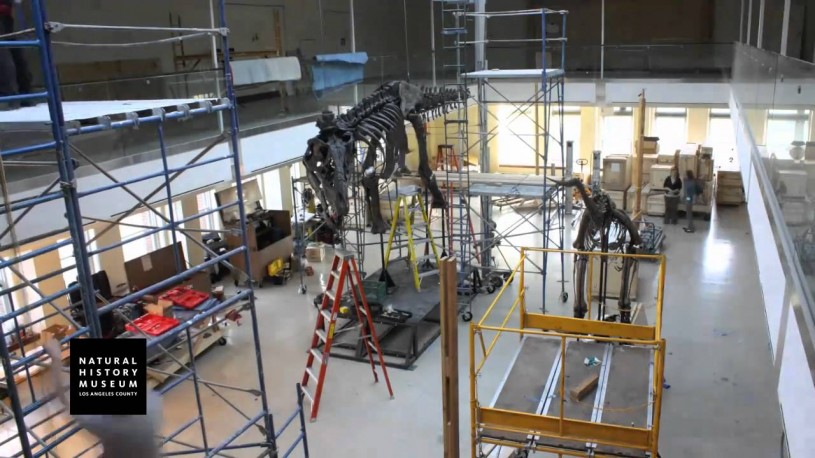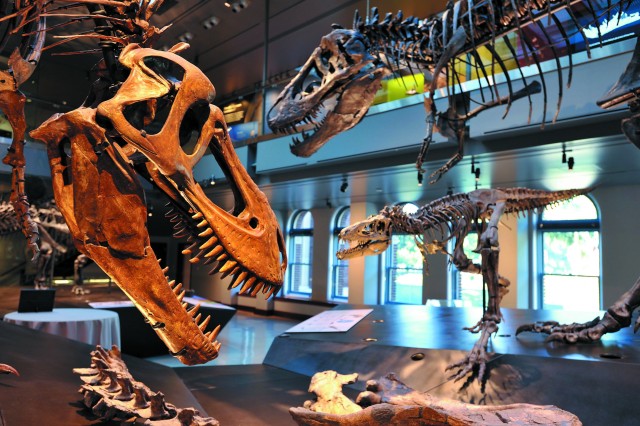The Hart Museum remains closed. Los Angeles County has approved a plan to transfer the William S. Hart Museum and Park from the County to the City of Santa Clarita.
Our 10 Year Dinoversary
Celebrating the first decade of NHM's ground-shaking Dinosaur Hall
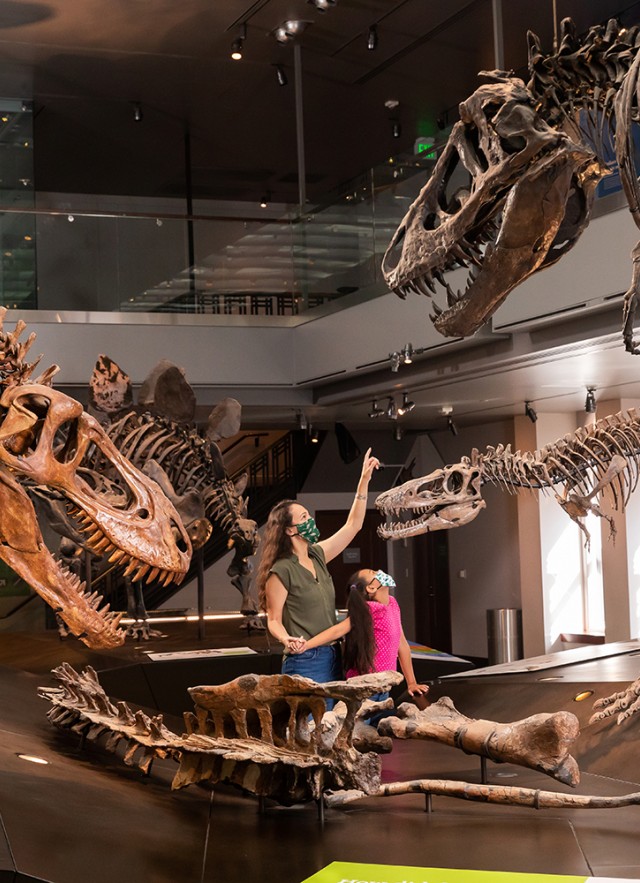
Since NHM opened the Jane G. Pisano Dinosaur Hall in the summer of 2011, millions of visitors have marveled at the massive, mighty giants of ancient Earth. The award-winning exhibition, rivaling the world’s leading monumental installations of Cretaceous wonders, displays some of the most commanding and beguiling dinosaurs and sea creatures to ever inhabit our prehistoric planet. The two-story hall’s 20 complete skeletons include the enormous Triceratops, a long-necked Mamenchisaurus (which stretches longer than a city bus), and a flock of chicken-sized Fruitadens haagarorum. The spectacular T. rex growth series—an installation that exists only at NHM—shows a baby, juvenile, and young adult T. rex specimens hovering over the remains of their prey.
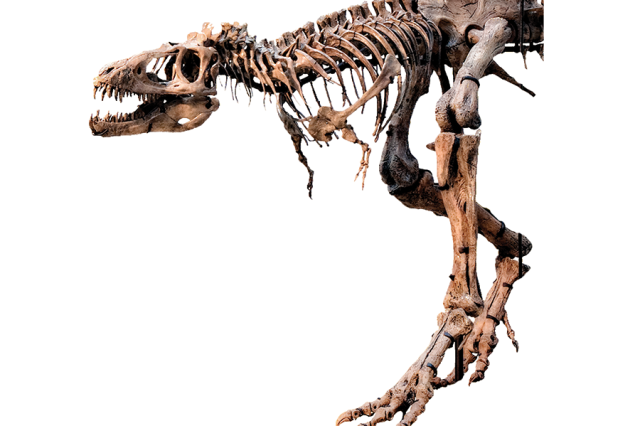
The juvenile T. rex: an adorable part of the one-of-a-kind T. rex growth series in NHM's Dinosaur Hall
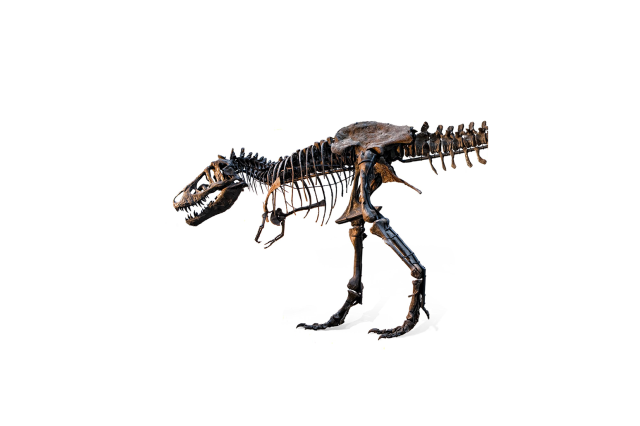
Is it us, or is this adolescent T. rex sulking?
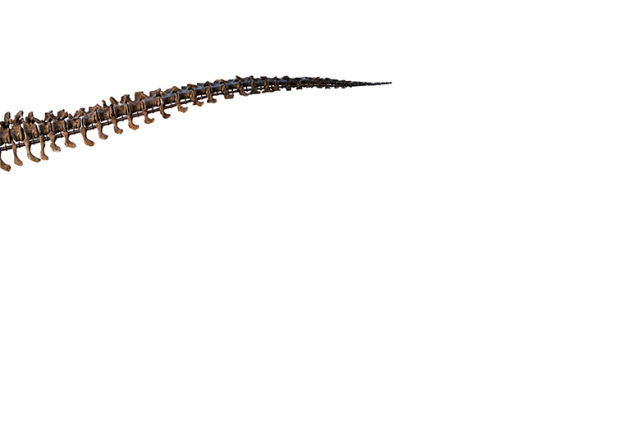
They grow up so fast. And long.
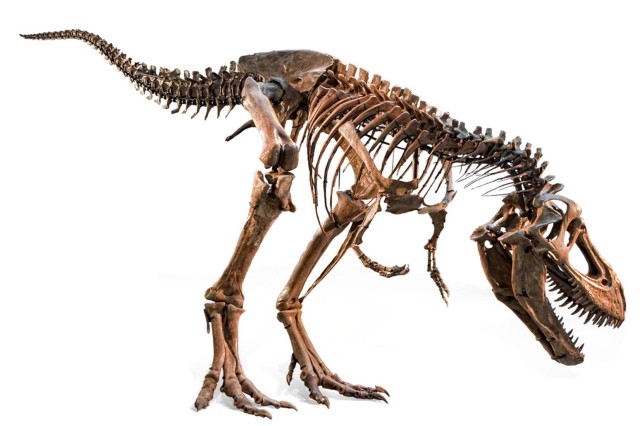
The all grown up T. rex rounds out the growth series in all its adult apex predator glory.
1 of 1
The juvenile T. rex: an adorable part of the one-of-a-kind T. rex growth series in NHM's Dinosaur Hall
Is it us, or is this adolescent T. rex sulking?
They grow up so fast. And long.
The all grown up T. rex rounds out the growth series in all its adult apex predator glory.
The airy hall, filled with over 300 fossil specimens, is designed to allow visitors to chart their own path, just like real paleontologists who investigate life that existed during the Age of Dinosaurs. Behind-the-scenes film footage of paleontological expeditions help visitors follow their curiosity to answer age-old questions: What is a dinosaur? How did they live? What happened to them? Where do you find fossils? How did you get these massive bones inside the building?! Perhaps the most mind-blowing fact is that (literally) tons of these dino bones were excavated by NHM's Dinosaur Institute crew!
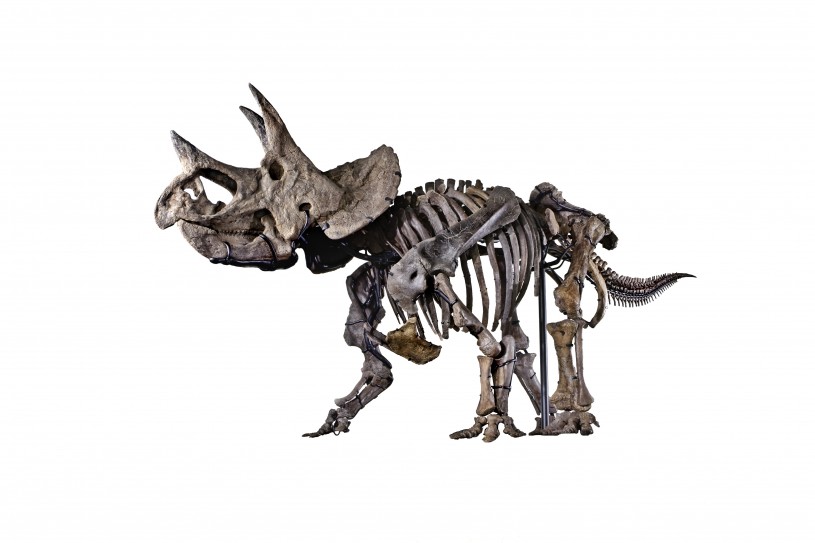
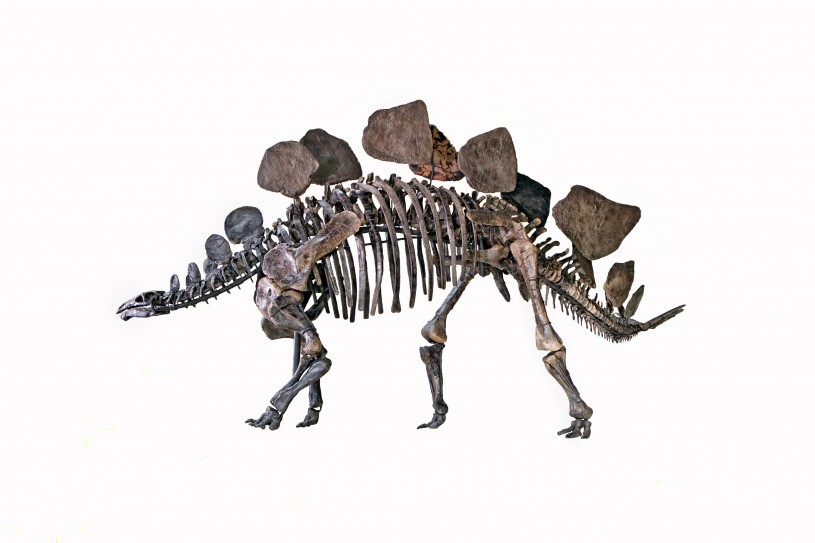
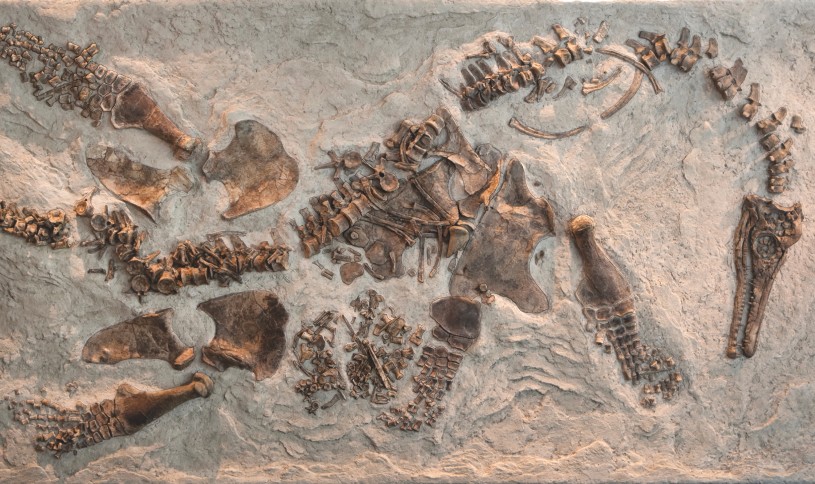
Our Dinosaur Institute Director explains why this marine reptile blows his mind!
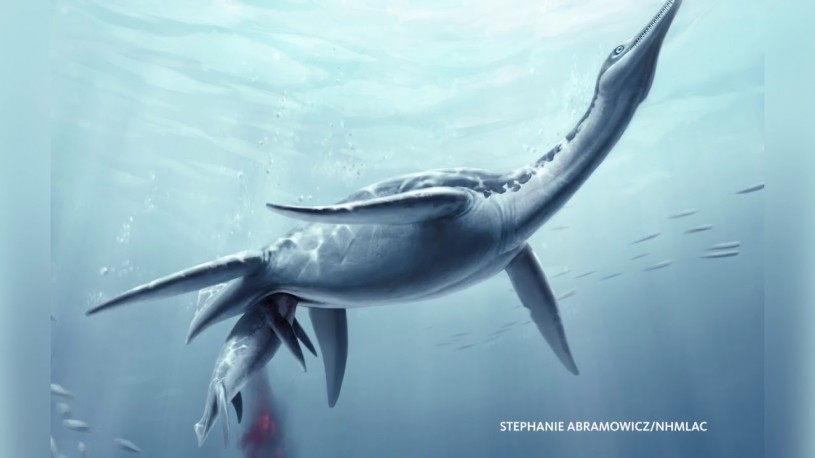
Besides these mounted skeletons, there are videos and touchscreens that show what they might have looked like as fleshed-out creatures. Visitors can also look at microscopic evidence up close, manipulate tumblers to piece together fragments of bone, or crouch beneath a platform to feel fossils embedded in simulated rock. The Dinosaur Hall exhibition is an invitation to play the part of prospector, geologist, paleontologist, and excavator all in one outing. Follow the cast of a dinosaur trackway installed in the floor, compare your feet to a dinosaur imprint, and share with us what you discover.
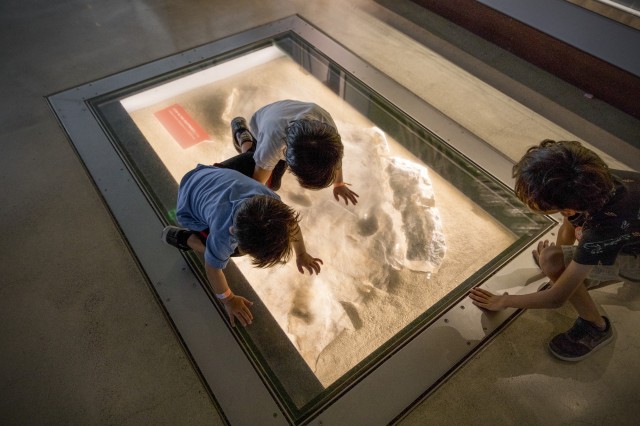
Kids walk in the footprints of California's biggest dinosaur.
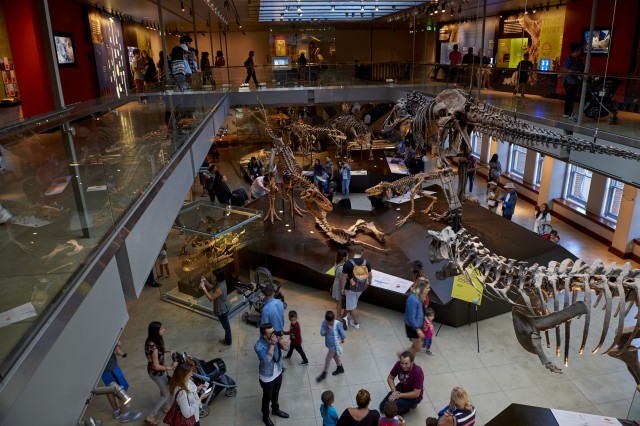
Look down on the T. rex trio from the balcony of the Dinosaur Hall.
1 of 1
Kids walk in the footprints of California's biggest dinosaur.
Look down on the T. rex trio from the balcony of the Dinosaur Hall.
Look at how we got our trio of T. rexes to stand tall!
